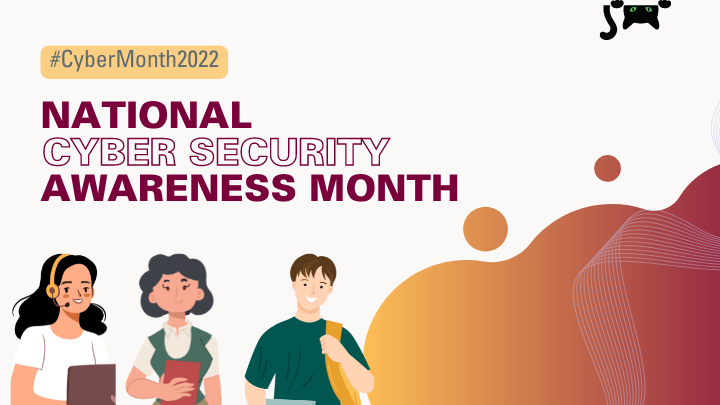Wrapping up the National Cyber Security Awareness Month with game changing super cyber security takeaways!

With the month of October coming to an end, we’d like to thank our behind-the-scenes super cyber security heroes: the McMaster IT Security team! The National Cyber Security Awareness Month campaign was a success thanks to your dedication and efforts, and the McMaster community’s support and engagement.
Over four weeks, the McMaster cyber heroes’ adventures have taught us a lot about protecting ourselves from phishing attempts and keeping our data and devices secure. The most important lessons of all are that cyber security is a shared responsibility, every one of us is a cyber hero and we should always trust our cyber senses! Thanks to all students, staff and faculty McMaster cyber heroes who were able to spot the cyber villain cyber cat in our online competition over the last few weeks and congratulations to the contest winners.
We have gathered here super cyber security takeaways for this month, let’s make sure we’re incorporating cyber safe habits into our routine and staying secure. Ruining a cyber villain’s day is not hard, simple steps can do the job:
-
Sign up for MFA: Multi-Factor Authentication – Office 365 Hub
-
Use strong, safe and secure passwords on all your devices and accounts. Use a password manager to keep your account information safe. More about passwords here
-
Check who has access to your data on a regular basis by looking at your user permissions.
-
Store your data properly and securely by using tools that your institution offers to keep it safe and easily manageable. McMaster students, staff and faculty can refer to McMaster storage guidelines
-
Beware of suspicious communications, stay alert and use your cyber senses to sort through phishing, spam, and malware! Learn more on how to recognize phishing and protect yourself and others here.
-
Always Trust and verify with the individuals that contact you initially asking for a favor. Hover over links and think about who is contacting you and what they are asking you to do. Complete the McMaster IT Phishing Course.
-
Ensure that channels of communication you are using when handing out sensitive information are recognized and secure ones
-
Update your devices regularly with the latest software patches
-
Backup your data and files
-
Ensure that your online information is safe and secure in a public setting
-
Make sure the URLs you visit are legitimate.
